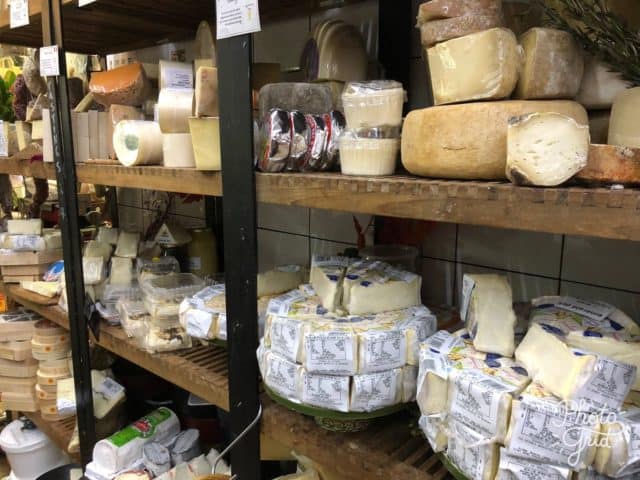
My parents are frugal.
My grandparents were frugal.
I am not frugal.
Somehow the frugal gene bypassed a generation.
What I should be doing is deep diving into the last 12 months’ of spending and look at where I can save more. But I am so depressed by my results that I am actively avoiding it.
I have binge watched a whole series on Netflix, read far more blogs today than usual, done household chores, completed online modules for a course for work … all very productive tasks, but all in the name of avoiding my spending habits of the last 12 months.
At the back of my mind, I am wondering why I am not more frugal than I am. After all, I had great examples growing up.
Definition of Frugal
So what is the definition of frugal?
The Oxford Dictionary of English defines frugal as
‘Sparing or economical as regards money or food’ and also
‘Simple and plain and costing little’
Intellectually, I understand the need to be frugal on my FI journey – the less money I spend, the more money I have to save and invest. I even wrote about it here.
I also understand that I need to increase my income if I am not able to reduce my spending. Right now I am seriously contemplating reducing my full time hours for the sake of my mental health. So increasing income may not be easily achievable. Which leads back to reducing my spending and being frugal.
So why does being frugal evoke such negative emotions in me?
I will start from the beginning …
My money story
I wrote about my money story a while ago. My parents grew up in post Second World War Malaysia in poor families. I however, grew up in a typical middle class setting, not wanting for anything. I always had enough clothes, a roof over my head and more than enough food. We moved to Australia for a better future. I live a privileged life.
My parents taught me to always turn off the lights if we were not in the room and not to waste water. We certainly did not waste food – leftovers would be served till all is consumed. We did not use cling wrap or aluminium foil – they always used a plate turned upside down to cover leftover dishes in the fridge. Glass jars and plastic ice cream containers were hoarded to be used to store other stuff. Plastic bags were never thrown away – instead they were reused – as garbage bags mainly.
They taught me about the need to save for a rainy day, to invest in a house of my own, to work hard and save some more.
I started earning money
When I completed my university studies, there were not many jobs in my profession. I picked up shifts here and there and finally settled down to a full time job about a year later. I am still with the same employer to this day.
It was such a relief to find stable, full time work. It meant I didn’t have to be so careful with my money. I was living at home and didn’t need to pay for housing or food costs. I had a lot of disposable income … it felt good to spend my money on whatever made me happy.
A lot of things made me happy. Unfortunately.
Things like clothes, shoes (I LOVE shoes), books. I indulged in eating out and developed a taste for gourmet food. Imported French cheese, anyone? Luckily, I don’t drink – alcohol does not agree with me – otherwise I imagine I would be spending a lot on expensive red wine. Or craft beer.

I reckon I bought something every weekend. My therapy was to visit shopping centres and ostensibly, to window shop but invariably would end up with a purchase.
I also loved going on holidays and never stayed in a hostel. Travel hacking wasn’t a thing in the early days either.
At the same time, I was trying to save for a deposit for a house purchase.
When I was discouraged by the lack of success in house hunting, I booked a holiday away. Because I deserve some time out from the stress of house hunting. From the stress of saving hard for a deposit. How self sabotaging is that?
Spending money is fun.
Then I bought a house
Writing a cheque for the deposit at the conclusion of the auction was scary. Very grown up.
I spent a LOT of money that weekend. 5 figure sum for the deposit plus a 6 figure mortgage. Very grown up indeed.
But that was just the beginning.
I proceeded to fill my house with things.
When I wasn’t working the weekend shifts for penalty rates, I was shopping for ‘things for the house’.
I bought new furniture and household appliances. Linens and crockery. Kitchen gadgets and baking paraphernalia.
When I ran out of space, I bought more shelves.
Experiences instead of stuff
The house is chock full of stuff. After a while, even I acknowledge that there is nothing else to buy ‘for the house’.
Now I start buying experiences – baking classes, cooking lessons and more holidays – travel experiences. The best is a combination of these …

I don’t regret these purchases – learning a new technique, a new concept, experiencing new cultures, taste new foods – it all makes me happy or spark joy, to be on trend 🙂 I have so many wonderful memories of places I have visited and restaurants I have eaten at; theatres and concert halls; markets and laneways.
In the wake of the tragedy of the fire at Notre Dame Cathedral in Paris, I am so grateful that I was able to visit her. That I paid to climb up the spire / tower and was up close and personal with her gargoyles; grateful that I was able to enjoy organ recitals one evening in that magnificent space, with the evening sun streaming through her stained glass windows.
Why do I struggle so much with being frugal?
Learning about FIRE, frugality rears its head again in my life. I read of people aiming at only spending $2 per meal, travel hacking, no spend months and DIYing everything.
I am reminded of my parents’ frugality and my Mum’s exhortations to stop buying things.
Whenever Mum visited my house, she would ask me how much this was, how much that was. I never told her the truth. I learned to hide my expensive taste from her a long time ago. And I can still see her shaking her head sadly, lamenting that I have too much stuff.
All I heard was criticism, not concern.
Just because you are frugal, Mum, doesn’t mean I should be too. And I can afford these purchases. I am proud that I earn enough money to spend on whatever I want whenever I want. That was my definition of wealth.
So the word ‘frugal’ still conjures up negative connotations and emotions in me.
Firstly, I relate it to my Mum criticising me. Criticising my way of life, how I choose to spend my money.
Secondly, I relate it to watching your pennies, to always be careful with every purchase, to worrying about money., being stingy. I relate it to being restricted, constrained, not free.
Thirdly, I equate success with excess, abundance, generosity. Why have two plates from St Vincent de Paul (which is what I had in my student days sharing a flat with my friend) when I can have twelve? I like being generous with my gifts for family and friends.
Finally, I love spending money. Spending money makes me feel good, happy – that burst of endorphins that I can’t get from exercise. Even though I no longer buy things or stuff, I still like to buy experiences.
So where does that leave me?
I fight …
against the negative emotions by acknowledging them.
And ‘hearing’ my Mum’s voice in my head as loving concern instead of criticism. She was right – I was buying crap that I didn’t have room for in my house. I was wasting my money. My Mum was right to be concerned.
I re evaluate …
what it means to be successful. Yes – excess, abundance and generosity. But not with things. With my time, my relationships. For example, I offer to cook for my friend’s birthday instead of us going out to eat at a restaurant.
I pause …
before I make any purchases. Whether they be expensive experiences or that cappuccino I crave because I am stressed at work. I leave it for at least 24 hours and then decide if I still want it. (Not the coffee, of course! Generally 15 minutes later I am okay or I make myself a cup of tea – free at work. Yes, work provides instant coffee too but sorry, I can’t bring myself to go there …)
I identify …
what my spending triggers are. When do I spend money? I know I succumb to temptation when I am tired, stressed out, bored and time poor. So I take steps to avoid shopping when I am in these states including grocery or food shopping. I always buy an unhealthy snack if I go to the supermarket tired or cranky or stressed out.
I develop …
new habits such as eating everything in my fridge and pantry; only buying what I can consume; brewing coffee in the morning; eating oats for breakfast; bringing lunch to work; wearing an extra layer of clothing indoors in winter; not going to shopping centres for retail therapy and so on.
new skills such as gardening – my dream is to grow a vegetable patch
I learn …
from people who have walked this path. Such as Liz from Frugalwoods and Jillian from Montana Money Adventures and be inspired to try out their tips and advice on frugality and intentional living.
Final thoughts
Maybe frugality is not a gene so much as a muscle that must be exercised often. It is a mindset where I can be satisfied with less now in order to have more later.
I accept that it is a long process, that I will stuff up sometimes but that I will get back on track again. That at times, I will want to be ‘spendy’ again. Or that I may transfer my love of spending to buying on the stock market!
What about you – do you struggle with frugality too? How do you change your mindset from wanting everything now to having less is more?


